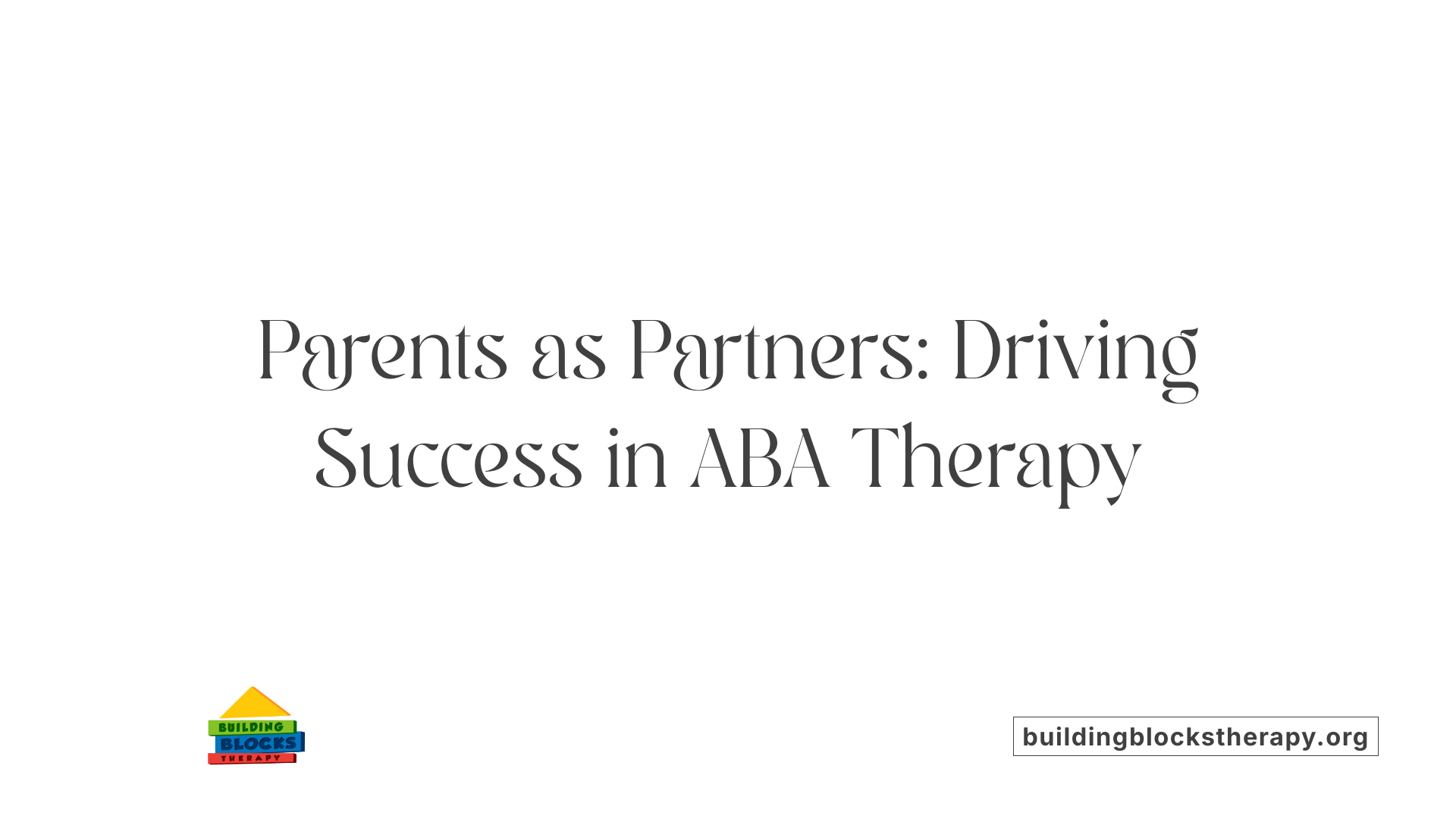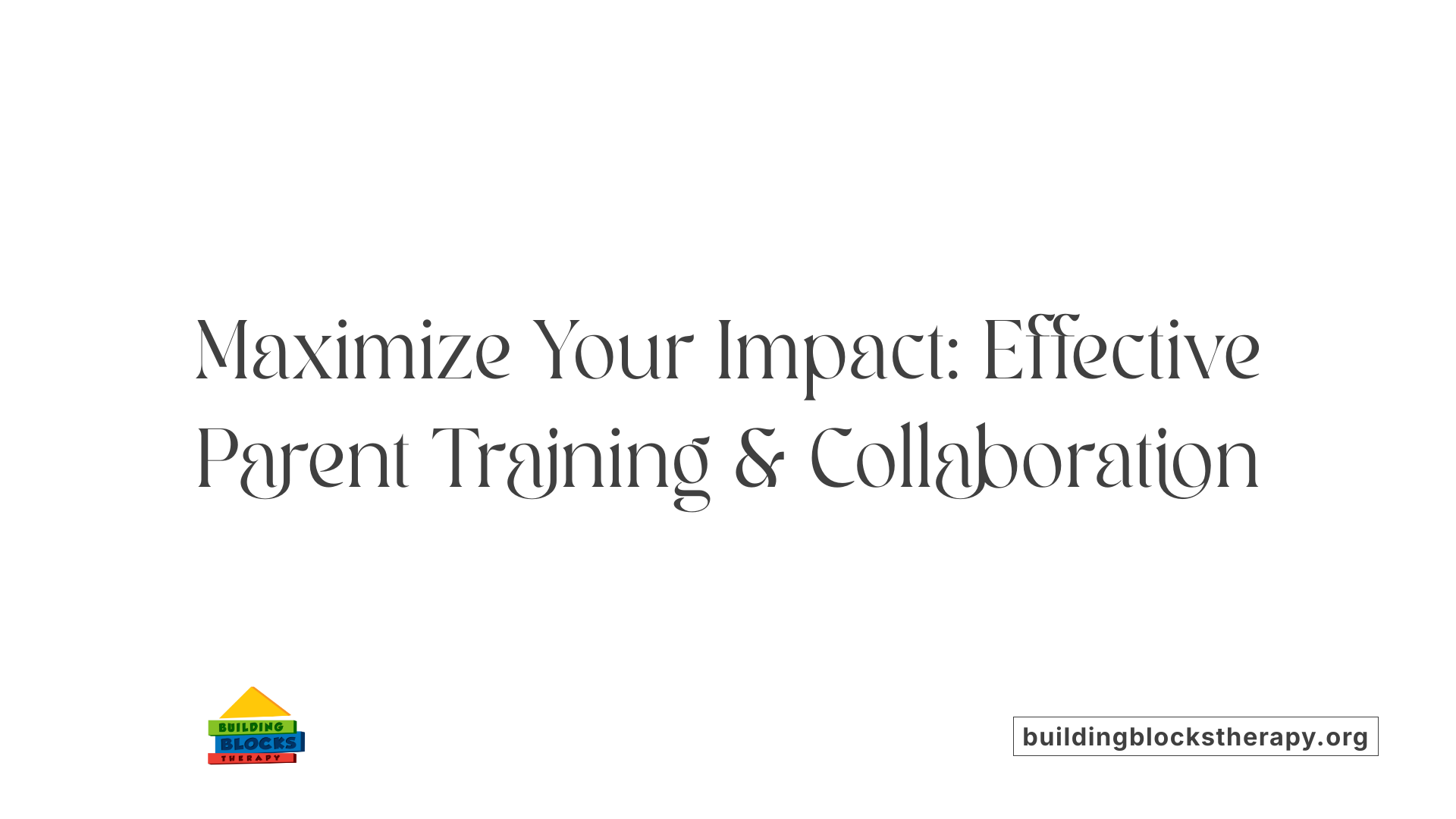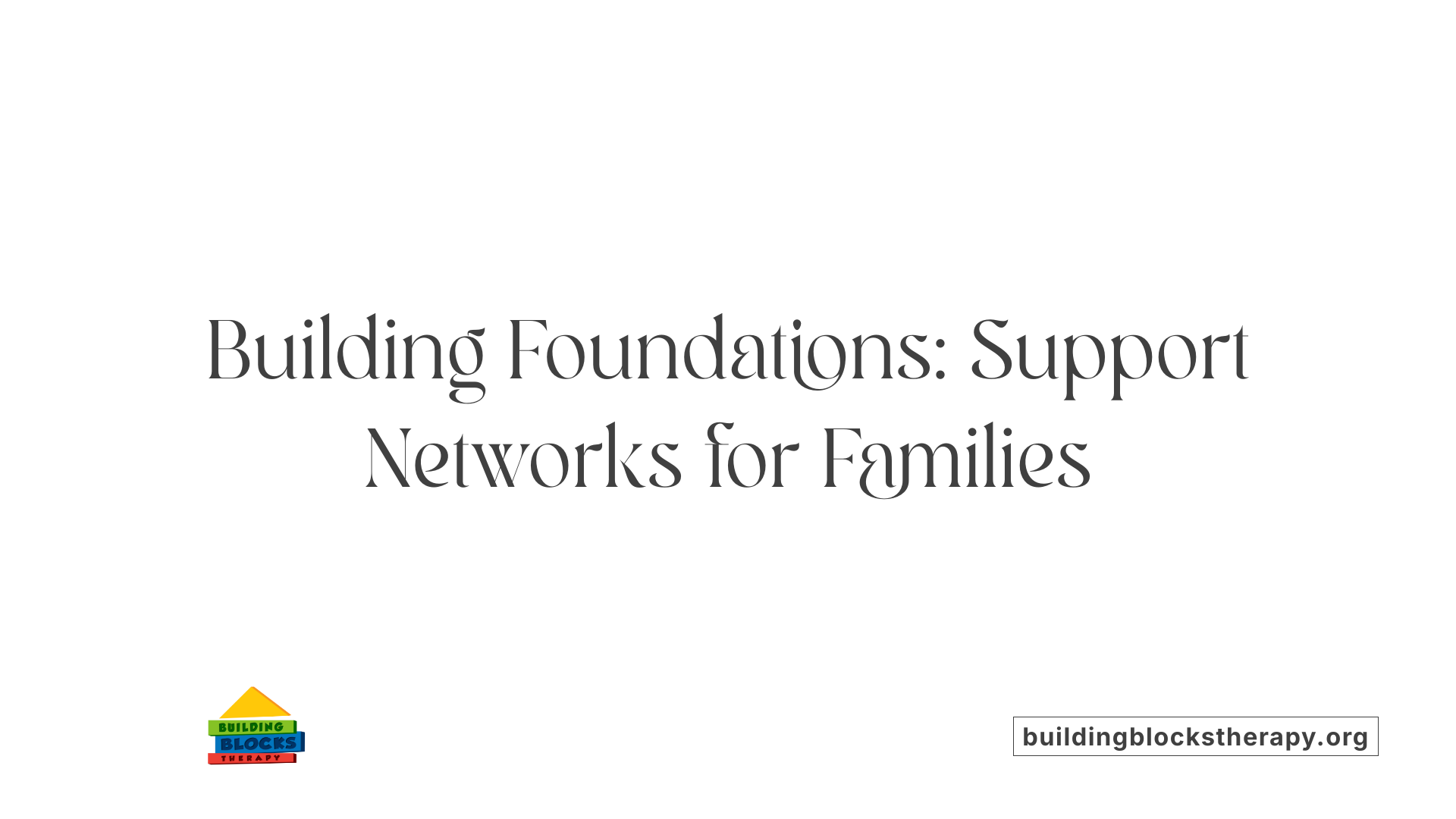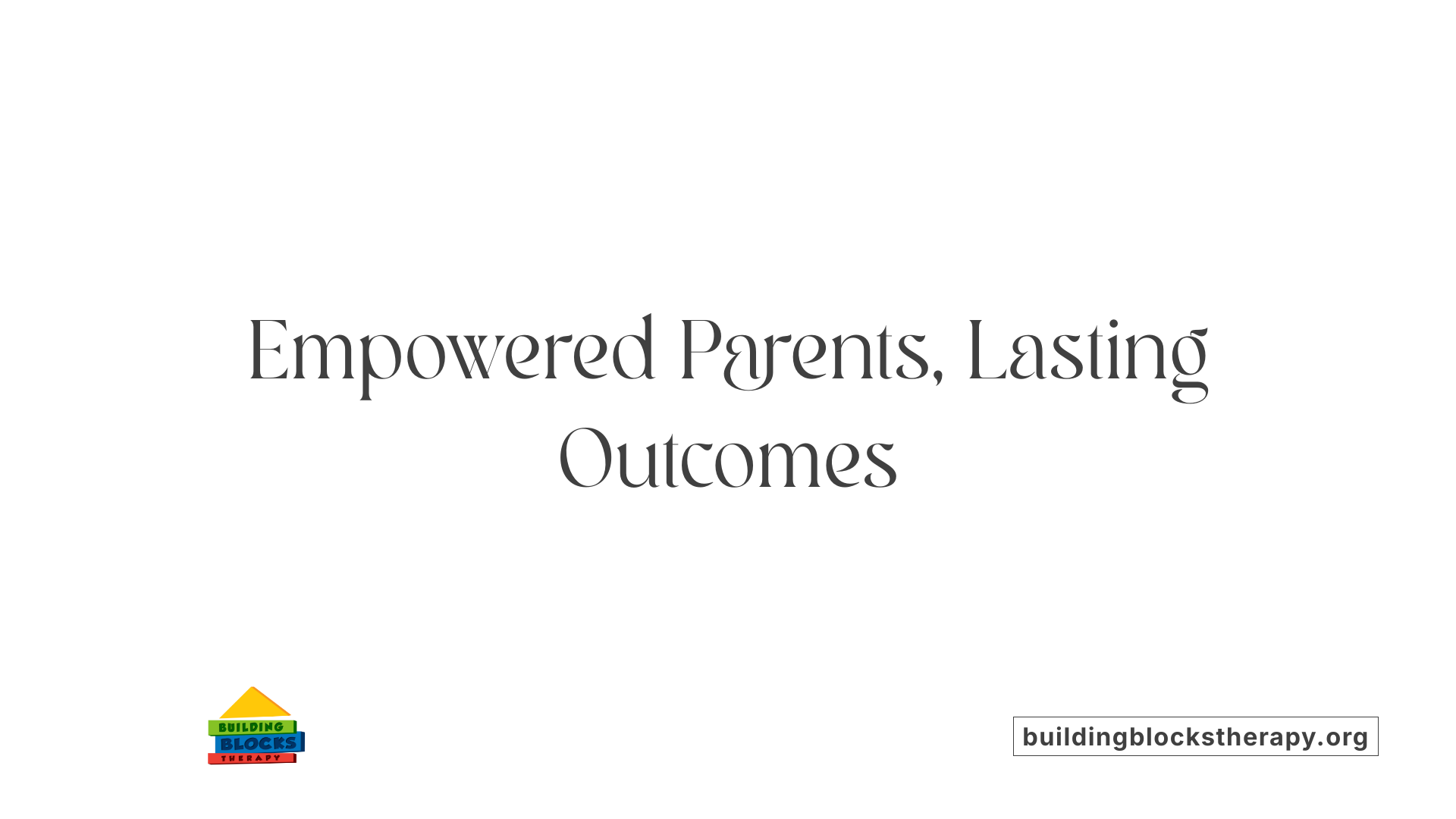Understanding Why Parental Involvement Matters in ABA Therapy
Parental involvement is recognized as a cornerstone of successful ABA therapy for children with autism. When parents actively participate in their child's intervention process, they are instrumental in ensuring that therapeutic gains generalize across settings, are maintained over time, and are supported within the child's natural environment. This comprehensive guide explores the crucial role parents play, the evidence backing their importance, and practical strategies to foster meaningful engagement, ultimately improving developmental outcomes and family well-being.
The Central Role of Parents in ABA Success

Why is parental involvement in early intervention crucial?
Parental involvement stands out as an essential component of effective ABA therapy for children with autism. When parents actively participate, they help ensure that behavioral strategies learned in therapy are applied consistently at home and in other settings. This consistency fosters better skill generalization and helps behaviors be maintained over time.
Children benefit from structured support outside therapy sessions, which accelerates their progress and deepens their developmental gains. Engaged parents not only reinforce learning but also strengthen the emotional bond with their child, creating a nurturing environment conducive to growth.
How does parental involvement impact skill generalization and maintenance?
One of the main advantages of parental involvement is its role in helping children transfer skills across different environments. Skills acquired during therapy can be reinforced through activities at home, school, and community settings.
By practicing ABA techniques regularly, parents can help their children retain skills longer and prevent regression. This ongoing reinforcement minimizes gaps in learning, supports the child's confidence, and sustains developmental gains.
Creating a consistent and predictable environment through parental involvement ensures that behaviors learned are not isolated to therapy sessions but become part of the child's everyday life.
What effect does parental involvement have on child development and overall progress?
Research consistently indicates that children whose parents are actively involved in their ABA programs experience faster and more comprehensive development. Involvement allows for tailored goal setting that reflects the child's specific needs and circumstances.
Parents who participate in training and collaborate with therapists often report increased confidence and decreased stress levels. This empowerment helps them better support their child’s needs, leading to stronger parent-child relationships.
Furthermore, parental engagement supports emotional and social growth, improves communication, and promotes independence. Overall, involving parents is associated with improvements across cognitive, behavioral, and social domains, ultimately leading to more successful and lasting outcomes for children with autism.
| Aspect | Impact | Additional Details |
|---|---|---|
| Skill Generalization | Promotes transfer of learned behaviors across environments | Reinforces techniques at home, school, and community |
| Maintenance | Helps sustain progress over time | Prevents regression and supports long-term development |
| Child Development | Accelerates overall growth and skills acquisition | Builds confidence, independence, and social skills |
| Parent Outcomes | Enhances confidence and reduces stress | Encourages active participation and collaboration |
Parental involvement, through options like parent training, collaboration in goal setting, and consistent reinforcement, creates a supportive framework that accelerates progress and ensures enduring success in ABA therapy.
Strategies for Engaged and Effective Parental Participation

How can parents best support ABA therapy through training and education?
Parents play a vital role in the success of ABA therapy by actively participating in structured training programs. Such programs, often led by certified professionals like Board Certified Behavior Analysts® (BCBAs®), teach caregivers specific techniques to reinforce new skills and manage challenging behaviors safely and effectively.
Effective parent training typically involves forming a collaborative partnership with therapists. This collaboration begins with assessments to identify individual family needs and cultural contexts, ensuring training is relevant and respectful. Behavioral Skills Training (BST)—which includes instruction, modeling, rehearsal, and feedback—is a commonly used method that helps parents thoroughly learn and confidently implement interventions.
Tailoring training goals to fit each family's unique circumstances, including cultural considerations and barriers like stress or busy schedules, enhances engagement. Encouraging parents to apply strategies consistently in daily life, whether at home, school, or in community settings, supports skill generalization for the child. Continuous monitoring, reevaluation, and celebrating successes empower parents to remain motivated and active in their child's progress, transforming them into effective real-world implementers of ABA strategies.
What are the best practices for effective parental engagement in ABA treatment?
Successful parental engagement hinges on ongoing involvement, including participating in training sessions, practicing ABA techniques regularly, and integrating learned skills into routines. Building a trusting, collaborative relationship with the therapy team is essential for tailoring interventions and troubleshooting challenges.
Open and continuous communication helps keep parents informed of their child's progress and fosters a team environment. Utilizing technological tools—such as mobile apps for progress tracking or online modules—can offer flexible, accessible avenues for learning and support.
Addressing potential barriers such as parental stress, time limitations, or socioeconomic challenges is crucial. This can involve flexible scheduling of training sessions, remote learning options, and providing resource connections within the community.
Overall, the combination of informed, consistent participation and support creates a strong foundation for effective ABA treatment, leading to improved developmental outcomes and stronger parent-child relationships.
Building a comprehensive understanding of parental involvement in ABA
| Aspect | Description | Additional Notes |
|---|---|---|
| Parent Training | Formal programs led by professionals to teach ABA techniques | Essential for skill reinforcement and managing behaviors |
| Technology Use | Digital tools for training, communication, and progress monitoring | Enhances accessibility and flexibility |
| Collaboration | Regular communication and joint goal setting with therapists | Ensures tailored, consistent interventions |
| Barrier Management | Addressing stress, time, and socioeconomic factors | Critical for sustained engagement |
| Home Integration | Applying ABA strategies daily at home and community | Promotes skill generalization |
Engaged parents, equipped with proper training and supported through ongoing communication, serve as vital partners in the child's therapeutic journey. Their active participation not only accelerates developmental progress but also reinforces the child's ability to apply skills across environments, ultimately fostering a more positive, nurturing, and effective intervention experience.
Benefits and Outcomes of Parental Engagement

What are the benefits of active parental involvement for children with autism and their families?
Active participation by parents in their child's autism therapy has proven to be highly beneficial. Research highlights that parental involvement, especially in Applied Behavior Analysis (ABA) programs, helps children develop crucial skills more rapidly by providing consistent reinforcement across different settings like home and community environments. This consistency encourages skill generalization, meaning children can apply what they learn in therapy to real-life situations.
Furthermore, parental engagement fosters stronger emotional connections between parents and children. When parents actively participate, their confidence in supporting their child's development increases, leading to more effective caregiving and better family dynamics. Empowered parents who understand ABA principles and strategies can better advocate for their children's needs, which contributes to improved behavioral outcomes and sustained progress.
Overall, the collaboration between parents and therapists creates a nurturing environment that promotes long-term developmental gains. It helps children not only acquire new skills but also retain and expand these skills over time, setting a foundation for more independent and successful lives.
How does parental participation impact therapy outcomes and child development?
Parental involvement plays a crucial role in enhancing therapy effectiveness and supporting overall child growth. When parents are involved through training and consistent practice of ABA strategies, children benefit from reinforcement in all areas of life, outside the clinical setting. This reinforcement supports faster skill acquisition, better behavioral management, and improved communication.
Parents who actively participate tend to feel more confident in implementing intervention techniques, which reduces their stress levels. This self-efficacy not only encourages greater involvement but also stabilizes the child's environment, allowing skills learned in therapy to transfer into everyday situations.
Collaborative efforts between therapists and parents result in personalized treatment plans that adapt to the child's evolving needs. Open communication ensures that strategies are understood and correctly applied at home, leading to greater consistency. As a result, children exhibit more significant gains in social skills, adaptive behaviors, and independence.
In conclusion, parental engagement leads to better developmental outcomes by creating an ongoing support system. It empowers families, accelerates progress, and fosters a cohesive approach where everyone works together toward shared goals for the child's success.
Fostering Supportive Family and Community Environments
 Building a strong support network is vital for families navigating autism interventions. Connecting with community resources and parent groups provides caregivers with valuable information, emotional backing, and practical assistance.
Building a strong support network is vital for families navigating autism interventions. Connecting with community resources and parent groups provides caregivers with valuable information, emotional backing, and practical assistance.
Community organizations and local parent groups serve as platforms for sharing strategies, experiences, and fostering a sense of solidarity. These groups often organize workshops and training sessions to help parents learn ABA techniques and manage challenges effectively.
Encouraging peer support allows parents to exchange successful strategies, which can be adapted to their child's unique needs. Sharing insights and encouragement not only builds confidence but reduces feelings of isolation.
By actively participating in community programs and support networks, families can better sustain intervention efforts and promote consistent support for their children both at home and within the community. This collective approach enhances overall progress and nurtures resilient families.
Conclusion: Empowering Parents, Transforming Child Outcomes
 Parental involvement plays a crucial role in the success of early intervention and ABA therapy for children with autism. It enhances skill generalization, accelerates progress, and fosters stronger family bonds. Active participation through training, goal setting, and consistent reinforcement ensures better outcomes and empowers caregivers.
Parental involvement plays a crucial role in the success of early intervention and ABA therapy for children with autism. It enhances skill generalization, accelerates progress, and fosters stronger family bonds. Active participation through training, goal setting, and consistent reinforcement ensures better outcomes and empowers caregivers.
Ongoing support, education, and flexible strategies are essential to help parents overcome barriers such as stress and limited resources. Providing clear, culturally responsive information and creating strong collaboration between parents and therapists can make a significant difference.
Encouraging parental engagement means inviting parents to be active partners in therapy, assessing their needs, and equipping them with practical tools. Ultimately, empowered parents contribute to lasting positive change, greatly benefiting their child's development and family well-being.
Fostering Lasting Change Through Parental Empowerment
Parental involvement is a decisive factor in the success of ABA therapy for children with autism. By embracing training, open communication, and ongoing collaboration, parents not only enhance their child's developmental progress but also enrich family dynamics and overall well-being. Supportive networks, accessible education, and tailored strategies are key to overcoming barriers and ensuring sustained, meaningful improvements. Empowered parents become active advocates, fostering a nurturing environment where children can thrive and achieve their full potential.
References
- The Role of Caregiver Involvement in ABA Therapy
- Impact of ABA Therapy: The Key Role of Parental Involvement
- Parent Involvement in ABA Therapy - Surpass Behavioral Health
- Helping Parents Understand Applied Behavior Analysis: Creating a ...
- How to Encourage Parental Involvement and Boost the Success of ...
- Parental Involvement in ABA Therapy: What to Expect
- Parental Involvement in ABA Therapy for Children with Autism






